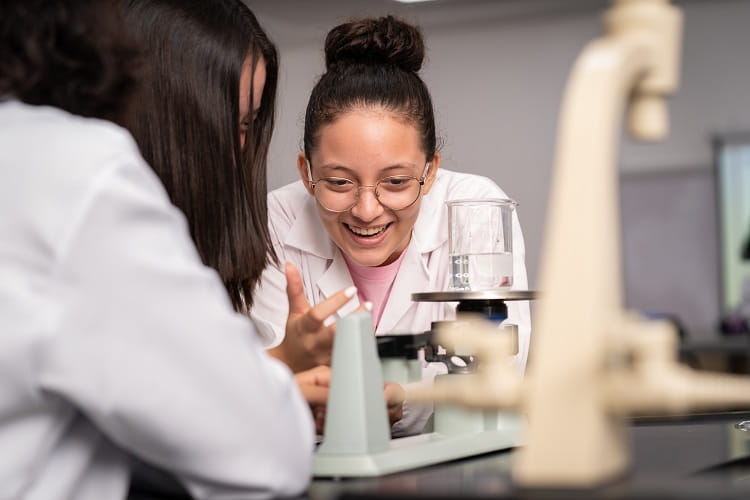We use cookies to improve your online experiences. To learn more and choose your cookies options, please refer to our cookie policy.

What does a “neurodivergent” diagnosis mean, and how can I support my child? As a learning support teacher with over 30 years of experience, this is a question I’ve often encountered. Also, as the parent of an autistic and dyslexic child—as well as being diagnosed with autism and ADHD myself—my experiences have given me deep insight into the challenges and questions parents face.
Receiving a diagnosis of neurodivergence for your child, such as autism or ADHD, can feel overwhelming. It will no doubt raise questions about what it means for their future and how you can best support them. So let’s go over what these terms mean, how to respond to a diagnosis, and what steps you should take.
It might feel confusing at first but familiarising yourself with what these mean will ultimately empower you. Neurodivergence refers to those whose brains function in ways that differ significantly from the majority, representing 15-20% of the population according to research from the National Library of Medicine. It also serves as an umbrella term for a range of neurological conditions, including autism, ADHD, and dyslexia.
I like to imagine an oak tree growing in a forest of pines. While the pines thrive, the oak struggles to grow in this environment due to different needs. Just as a forest can host various types of trees, humanity is also incredibly diverse and includes both neurodivergent and neurotypical individuals.
Often, the topic of neurodivergence first arises during parent-teacher meetings or when discussing family medical history, such as ADHD in a parent or sibling. In fact, studies show that there is likely a genetic link in families with neurodivergence, and that siblings of autistic children have a higher likelihood of being neurodivergent themselves. Dr Cuffman of the Cleveland Clinic emphasises that early intervention is vital when one child is diagnosed with autism, and concerns arise about another.
Neurodivergence is simply a difference—and with the right support every child can flourish. Neurodivergent children may face challenges in ways that differ from their neurotypical peers, but this does not mean they are less intelligent, or that they can’t succeed.
As a recent example from Year 6 at our school; a student recently diagnosed with both autism and ADHD found his passion for learning when he visited the Secondary School library. His interest in specific topics helped him thrive, and by focusing on his strengths, he became a "class expert" in areas he loved, boosting his self-esteem and engagement with learning.
As the saying goes, “knowledge is power.” Educating yourself about your child’s diagnosis is key. Talk to professionals who can assess your child, and seek out support groups, podcasts, and current literature to equip yourself with helpful tools.
Sharing my personal experiences as both a parent of a neurodivergent child and as an adult with autism and ADHD has allowed me to connect with other parents without judgement. This open exchange can reduce anxiety, lessen stigma, and encourage productive discussions about what works.
Also, ensuring both you and your child feel empowered is key. If your child learns best by recording their thoughts rather than writing them down, or if they focus better while standing or using a fidget tool, be sure to communicate these preferences with their school. Share any professional reports or advice to ensure the school environment supports your needs.
Once you have a diagnosis and have educated yourself about your child’s needs, you may be wondering who to talk to next.
A good starting point is the class teacher. Share any reports and explain the diagnosis as you understand it, along with any accommodations that may support your child. Share any reading material that you have found helpful too.
You may also wish to request a meeting with the Special Needs Coordinator for the school, to talk about additional support available. It may feel overwhelming, but remember schools are used to working with children of all neurotypes and abilities and teachers want to do their best for all children.
The following videos provide helpful insights into various neurological differences. Each individual’s experience is unique, so note that these resources only offer general guidance.
NeurodiversityWhat is Neurodiversity? & Introducing Neurodiversity
Attention Deficit Hyperactivity Disorder (ADHD)My Brain is a Race Car by Nell Harris & Let’s Talk About ADHD
AutismThere's No One Way to Be Autistic & Why Autism is a Difference, Not a Deficit
Dyspraxia or DCDDevelopmental Coordination Disorder
DyslexiaSee Dyslexia Differently
Developmental Language Disorder What is Developmental Language Disorder?
DyscalculiaFacts and Myths about Dyscalculia
As a final thought, I believe there is a place for everyone, and I have seen neurodivergent students grow into successful adults in a variety of fields. The key is to accept that everyone does things differently and that each person’s experience of the world is unique and valid. Embracing neurodiversity and fostering an environment where all children are supported can make a profound difference in their development and future success.
By Sarah Battersby
Sarah Battersby is a Learning Support Teacher & Teaching Research Fellow in Neuro Inclusion at the British International School Ho Chi Minh City